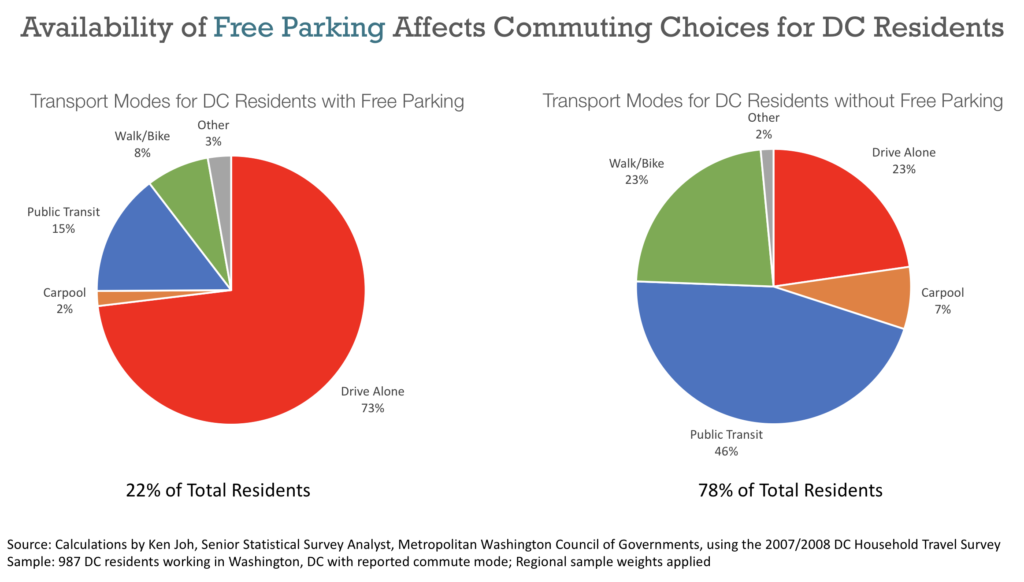January 30, 2020
Montgomery County Council Office
Council Office Building
100 Maryland Ave.
Rockville, MD 20850
FY 21 Capital Budget and FY 21-26 CIP (Support with Amendments)
Testimony for February 5th, 2020
Jane Lyons, Maryland Advocacy Manager
President Katz and Councilmembers, thank you for the opportunity to speak today. I am here on behalf of the Coalition for Smarter Growth, which supports the FY 21-26 CIP with several critical amendments. We are pleased with the support the County Executive’s CIP gives to bicycle and pedestrian safety, the Bethesda station south entrance, and bus stop improvements. These projects are a necessity if we want to end unnecessary tragedies on our streets.
Missing projects: Given that, I’ll begin with what we believe is missing: funding for the northern entrance for the White Flint Metro station, the Capital Crescent Trail tunnel in Bethesda, and a multi-use path along Dale Drive. These projects will support economic development and increase both Metro and Purple Line ridership. They also both specifically address safety along MD 355, one of the most dangerous and deadly roads in the county, where two people have already been killed in 2020.
Bus Rapid Transit: Regarding BRT, we are happy that this CIP includes funding for preliminary engineering of BRT on MD 355, Veirs Mill Rd, New Hampshire Ave, and the North Bethesda Transitway. However, given our economic development and climate crises, these projects cannot wait and should be advanced to start even sooner. Likewise, it is disappointing that there is no money included in the CIP for BRT construction. This is especially disappointing when every road project includes costs for both preliminary engineering and construction. Not one BRT project has a construction timeline. I hope the Council will prioritize BRT by actively planning for its implementation.
Specifically, I hope you will accelerate the preliminary engineering timeline for MD 355 – four years is much longer than needed – and schedule planning for New Hampshire Ave and North Bethesda Transitway to begin much earlier than FY22 and FY24, respectively. At this rate, we can expect that service wouldn’t begin on these lines until at least 2026. Can our economy or climate wait that long? Can transit-dependent residents in Gaithersburg or Germantown wait that long for high quality transit, especially in light of the Corridor Cities Transitway cancellation?
MCDOT has proposed that MD 355 BRT service be broken into three routes since the full 22 mile route is too long for an ideal level of frequency. This effectively breaks up construction and service commencement into three phases. I recommend that the Council select a design alternative (Alternative B); then when preliminary engineering and design for the first phase is complete, construction could begin on that phase while the second phase undergoes preliminary engineering and design, and so on.
Finally, we firmly believe that Route 29 BRT will not set a good example without dedicated lanes south of Tech Road. MCDOT’s median lane study was supposed to be released last fall. This report should be shared with the Council immediately so that any construction funding can be included in the CIP.
Ride On improvements: Given slow progress, most BRT service in the county won’t be operational for five to ten years. We recommend that MCDOT take the success of Ride On extRa and expand express bus service to the other future BRT corridors. Ride On extRa Route 101 increased ridership by 11 percent and reduced travel times by 25 percent. MCDOT should also officially name priority service corridors, similar to WMATA’s Priority Corridor Network, which has helped WMATA to quickly improve service in phases.
As mentioned, we are pleased with the continued upgrade of Ride On’s 5,400 bus stops. The CIP details a GIS bus stop inventory and condition assessment, criteria for improvements, and prioritization. To the best of our knowledge, that information is not easily available to the public. We request that MCDOT publicly post that information, especially their criteria for improvements and prioritization.
Additionally, we urge the county to prioritize electric vehicle replacement. Most replacements for the Ride On fleet are set to be hybrids; however, the proposed CIP still details that 80 of the 153 vehicles will be diesel.
Affordable housing: We are grateful to the County Executive for creating the new Affordable Housing Opportunity Fund to help acquire properties in areas with growing rents. This fund supports the recommendations we crafted as members of the Purple Line Corridor Coalition Housing Action Team. We hope the County Executive and DHCA will continue to work with affordable housing developers to craft a program that best fits their financing needs.
School capital projects: Finally, we want to support funding for school capital projects, especially those that will relieve clusters in moratorium. However, we should note that the incentive created by the moratorium to fund capacity projects leaves out the vital capital needs of schools that are falling apart but aren’t overcapacity. Through the SSP update process, we hope to revisit the moratorium, and replace it with a policy that better serves the needs of both schools and housing.
Given the challenge of a shrinking capital budget and so many urgent projects, it’s time for the Council to start considering new funding sources. We will not meet our economic development, climate, and equity goals without significant investments the infrastructure that allows us to thrive. Thank you for your time.


